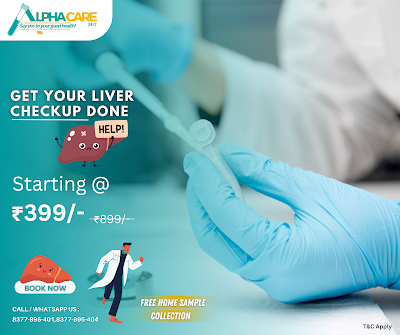Vitamin b12 deficiency | vitamin b12 deficiency symptoms | vitamin b12 Deficiency treatment | blood test for vitamin b12
What causes Vitamin B12 Deficiency?
Overview
Vitamin B12 (Cyanocobalamin) is an essential vitamin that
aids in the maintenance of normal neural and mental function.
- Vitamin B12 is required for the following functions:
- Formation of red blood cells, cell metabolism, nerve function, and DNA production
- Vitamin B12 is also important during pregnancy because it can help prevent spinal and central nervous system congenital defects in the baby.
- Vitamin B12 deficiency can cause anaemia, nerve and brain damage if left untreated.
- Vitamin B12, like most vitamins, cannot be produced by the body. You must instead consume it through food or supplements.
What are the signs and symptoms of B12 deficiency?
Vitamin B12 deficiency can lead to a variety of issues, including:
- Weakness and fatigue
- Constipation
- Appetite suppression
- Weight reduction
- Loss of equilibrium
- Thinking and memory problems
- Sore and swollen tongue
- Numbness or tingling sensations in the hands and feet
- Skin tone is pale yellow.
- Nausea
- Irritability
- Diarrhea
- Breathing difficulty
- Ulcers of the mouth
- Vision impairment
What causes a lack of
Vitamin B12?
Anemia caused by vitamin B12 deficiency can be caused by one of the following:
- Pernicious anaemia: The body requires a protein called intrinsic factor to absorb vitamin B12. Cells in the stomach lining produce this protein. The body's immune system mistakenly attacks these cells in people with pernicious anaemia, preventing intrinsic factor from combining with vitamin B12 and preventing its absorption. This condition primarily affects people over the age of 50.
- Vitamin B12 deficiency can be caused by stomach conditions such as Atrophic gastritis, which causes thinning of the stomach lining.
- Intestinal conditions such as Crohn's disease, which causes inflammation of the digestive tract lining, can result in vitamin B12 deficiency.
- Surgical procedures that remove a portion or all of the stomach or the end of the small intestine may prevent adequate vitamin B12 absorption.
- Certain medications can interfere with vitamin B12 absorption.
- Vegans and people with a poor diet are more likely to develop Vitamin B12 deficiency.
What are the Dangers
of Vitamin B12 Deficiency?
The following are risk factors for vitamin B12 deficiency
anaemia:
- A history of the disease in the family
- Autoimmune diseases, such as type 1 diabetes, can be treated by removing a portion or all of the stomach or intestine.
- Celiac disease
- HIV
- Vegetarian diets are strictly prohibited.
- Being a senior citizen
- Infants with an inadequate diet
How is a vitamin B12
deficiency identified?
Visit
Based on the medical history and symptoms, the doctor may
suspect Vitamin B12 deficiency. To confirm the diagnosis, the following
laboratory tests may be ordered:
- The Vitamin B12 test is used to determine the level of Vitamin B12 in the blood. Vitamin B12 testing is performed to determine if there is a deficiency or if blood levels of Vitamin B12 in the body are lower than normal.
- Standard blood tests to determine the number and appearance of red blood cells. Red blood cells are abnormally large and appear abnormal in Vitamin B12 deficiency.
- Iron and folate levels in the blood are measured to check for deficiencies.
- Methylmalonic acid levels in the blood are measured using a blood test. When a person is deficient in Vitamin B12, his or her blood level of methylmalonic acid rises.
- Tests for intrinsic factor antibodies in the blood. These antibodies are present in the blood of the majority of people who lack intrinsic factor in their stomach.
What is the treatment
for Vitamin B12 deficiency?
Visit
Vitamin B12 deficiency anaemia is treated with vitamin B12 supplements and the consumption of vitamin B12-rich foods such as :
- Eggs
- meat
- poultry
- milk
- shellfish
- fortified cereals
·
What are
the consequences of vitamin B12 deficiency?
Vitamin B12 deficiency can lead to complications depending on the severity and duration of the deficiency:
- Megaloblastic anaemia is characterised by red blood cells that are larger than normal. Because the red blood cells are too large, they may be unable to exit the bone marrow and enter the bloodstream to deliver oxygen.
- Vision disturbances, memory loss, difficulty walking or speaking, and nerve damage (peripheral neuropathy), particularly in the legs, are all examples of neurological problems.
- Infertility: A lack of vitamin B12 may prevent women from becoming pregnant.
- Stomach cancer: A vitamin B12 deficiency may increase the risk of developing stomach cancer.
- Pregnant women with vitamin B12 have a higher risk of neural tube defects.
- Pregnant women who are deficient in vitamin B12 may have an increased risk of their baby developing serious birth defects.
Visit
To get Your Vitamin B12 Test Done Today! Book Test @ www.alphacare247.in
Or Call us @ 8377895404,8377895401 to book an appointment for Vitamin B12.








Comments
Post a Comment